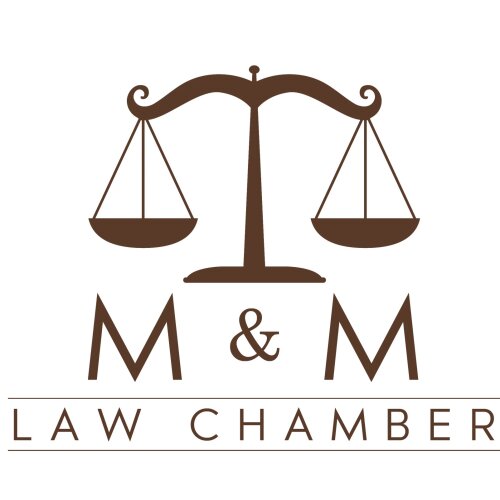Best Communications & Media Law Lawyers in Guwahati
Share your needs with us, get contacted by law firms.
Free. Takes 2 min.
List of the best lawyers in Guwahati, India
About Communications & Media Law in Guwahati, India
Communications & Media Law in Guwahati, India, encompasses a range of legal frameworks that govern how information is created, shared, distributed, and consumed across various media and communication platforms. This field includes print and electronic media, broadcasting, digital technologies, telecommunication, and online platforms. As Guwahati is a major urban hub in Northeast India, it experiences a dynamic mix of local, regional, and national influences in its media environment. The laws are designed to protect freedom of expression, ensure responsible journalism, manage technological advances, and safeguard the rights of individuals and organizations.
Why You May Need a Lawyer
You might require legal assistance in Communications & Media Law for various reasons. Legal challenges often arise in cases of defamation, copyright infringement, licensing disputes, regulatory compliance, content takedown requests, and conflicts between media houses and government authorities. Individuals and organizations may also seek advice on matters involving press freedom, privacy breaches, social media content regulation, or allegations of fake news. Having a knowledgeable lawyer can help you effectively navigate these complex scenarios, protect your rights, and minimize potential legal and financial repercussions.
Local Laws Overview
Guwahati, as part of Assam, follows the central Communications & Media Law statutes applicable throughout India, such as the Information Technology Act, 2000, Indian Telegraph Act, 1885, Copyright Act, 1957, Press and Registration of Books Act, 1867, and the Cable Television Networks (Regulation) Act, 1995. Assam also has state-specific regulations and local implementation mechanisms for these central laws. The Assam Police and local regulatory bodies play a role in monitoring online and offline media, investigating legal violations, and ensuring compliance. Journalistic activities may also intersect with local customs and sensitivities, making legal compliance especially important. In 2021, Assam introduced guidelines to curb misinformation and protect digital rights, which are particularly relevant for Guwahati residents.
Frequently Asked Questions
What is considered defamation in the context of online and print media?
Defamation occurs when false statements are published or broadcast that harm the reputation of an individual or organization. Both written (libel) and spoken (slander) forms can be prosecuted under Indian law, including specific provisions in the Indian Penal Code and the Information Technology Act.
Can I be held liable for sharing content on social media?
Yes. If the content shared is defamatory, incites violence, promotes hatred, or violates any applicable laws, you could be legally responsible even if you were not the original creator. It is important to verify information before sharing it online.
What should I do if I receive a legal notice regarding media content I have published?
You should contact a qualified Communications & Media Law lawyer immediately. Do not ignore the notice. Responding appropriately can help protect your interests and may lead to a resolution out of court.
Are there any licensing requirements for operating a media house or news outlet in Guwahati?
Yes. Print media entities must register under the Press and Registration of Books Act. TV and radio broadcasters must obtain licenses from the Ministry of Information & Broadcasting. Online news portals are required to adhere to intermediary guidelines under the IT Act.
What legal protections are available for journalists in Guwahati?
Journalists have constitutional protections under Article 19(1)(a) of the Indian Constitution (freedom of speech and expression), but these are subject to reasonable restrictions for public order, national security, and decency. Assam Police may provide additional protection in cases of specific threats.
Is consent necessary to record or broadcast private conversations?
Recording private conversations without consent can be a violation of the Indian Telegraph Act and IT Act, as well as privacy laws. Exceptions exist for investigative journalism involving public interest, but legal advice is essential before proceeding.
What are the penalties for broadcasting false or obscene content?
Penalties may include fines, imprisonment, license revocation, and civil suits for damages. The severity depends on the nature of the content and the harm caused, as per the IT Act and various broadcasting guidelines.
How can a business protect its content from being copied online?
Register your creative work under the Copyright Act and use digital tools to monitor usage. If unauthorized use is found, a lawyer can help you issue takedown notices and pursue legal action.
Are there local authorities in Guwahati that regulate media and communications?
Yes. The Assam Police’s Cyber Cell handles cybercrimes, including media law violations. Additionally, state media regulatory bodies and the local offices of central ministries oversee content and licensing compliance.
What steps can individuals take to report fake news or misinformation?
You can report fake news or misinformation to the Assam Police’s Cyber Crime unit, local district officials, or the Press Council of India. Several online platforms also have mechanisms to flag inappropriate or false content.
Additional Resources
- Assam Police Cyber Crime Cell: Investigates online crimes, including media-related offenses. - District Magistrate Office, Kamrup Metropolitan: For queries regarding licensing and local regulatory compliance. - Press Council of India: For issues related to journalistic ethics and press freedom. - Ministry of Information & Broadcasting (Regional Office): Regulatory information for broadcasters and news agencies. - Indian Copyright Office: For copyright registration and enforcement. - Local Bar Association, Guwahati: For referrals to specialized Communications & Media Law lawyers.
Next Steps
If you need legal assistance related to Communications & Media Law in Guwahati, start by documenting your issue clearly. Collect all relevant evidence, such as documents, emails, published content, or communications. Consider consulting with a lawyer specializing in media and communications law to evaluate your case and understand your rights. You can approach the local bar association or seek referrals from trusted sources. Prepare questions or concerns in advance to make the most of your consultation. If urgent action is required (such as responding to a legal notice or removing infringing content), act promptly to avoid legal complications. Stay informed about your legal responsibilities and adhere to both national and local regulations to minimize risks in the future.
Lawzana helps you find the best lawyers and law firms in Guwahati through a curated and pre-screened list of qualified legal professionals. Our platform offers rankings and detailed profiles of attorneys and law firms, allowing you to compare based on practice areas, including Communications & Media Law, experience, and client feedback.
Each profile includes a description of the firm's areas of practice, client reviews, team members and partners, year of establishment, spoken languages, office locations, contact information, social media presence, and any published articles or resources. Most firms on our platform speak English and are experienced in both local and international legal matters.
Get a quote from top-rated law firms in Guwahati, India — quickly, securely, and without unnecessary hassle.
Disclaimer:
The information provided on this page is for general informational purposes only and does not constitute legal advice. While we strive to ensure the accuracy and relevance of the content, legal information may change over time, and interpretations of the law can vary. You should always consult with a qualified legal professional for advice specific to your situation.
We disclaim all liability for actions taken or not taken based on the content of this page. If you believe any information is incorrect or outdated, please contact us, and we will review and update it where appropriate.









